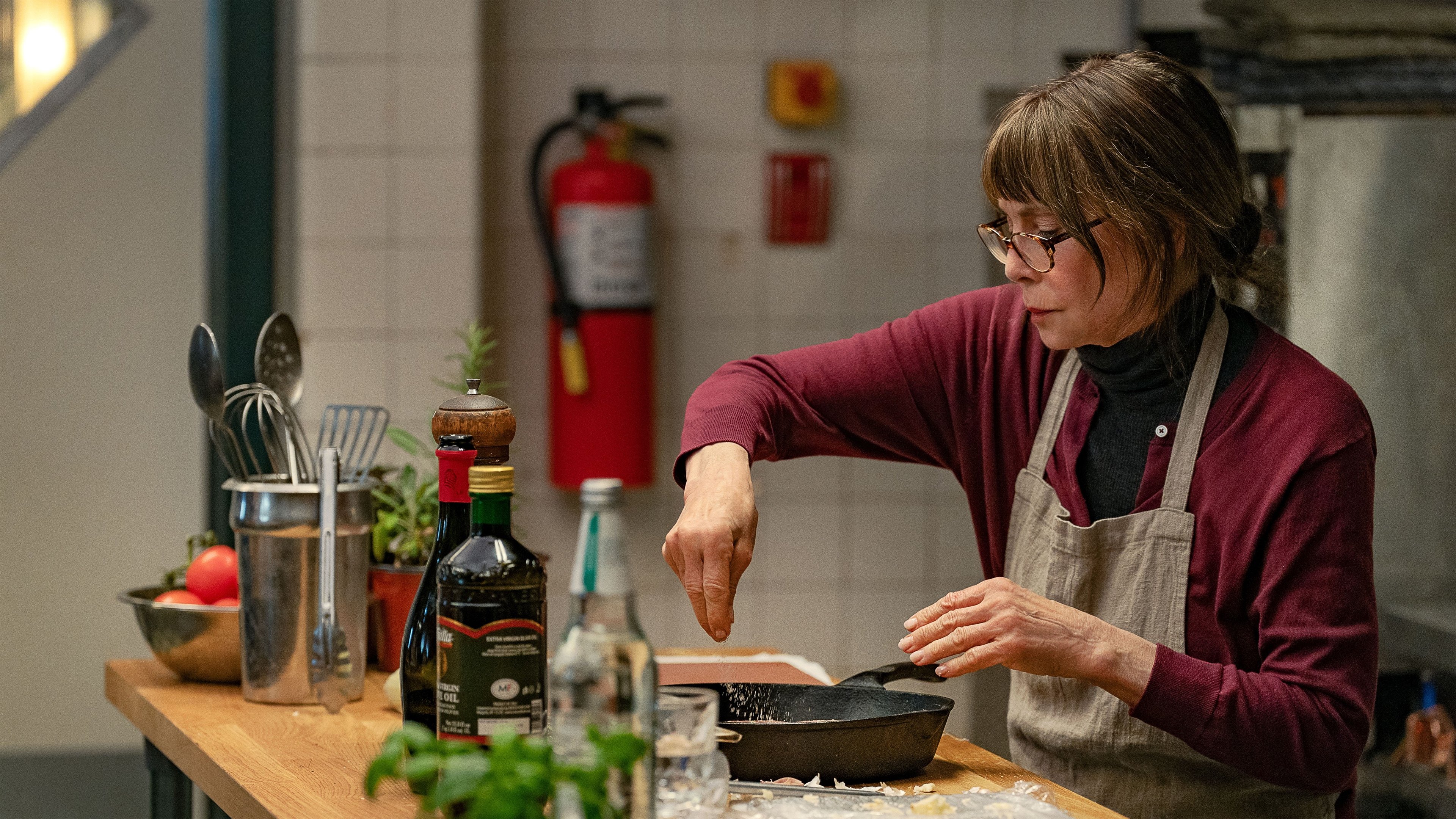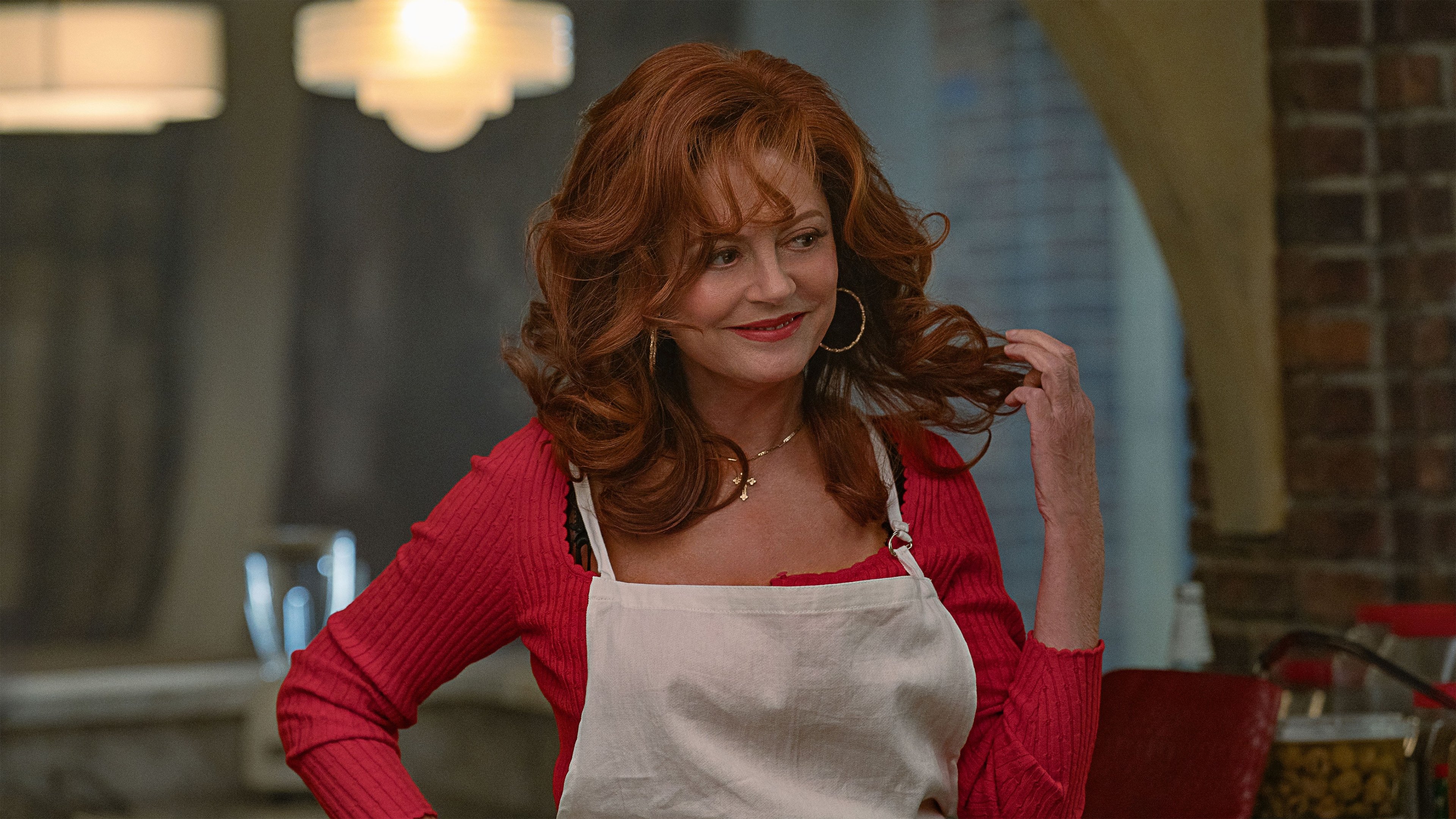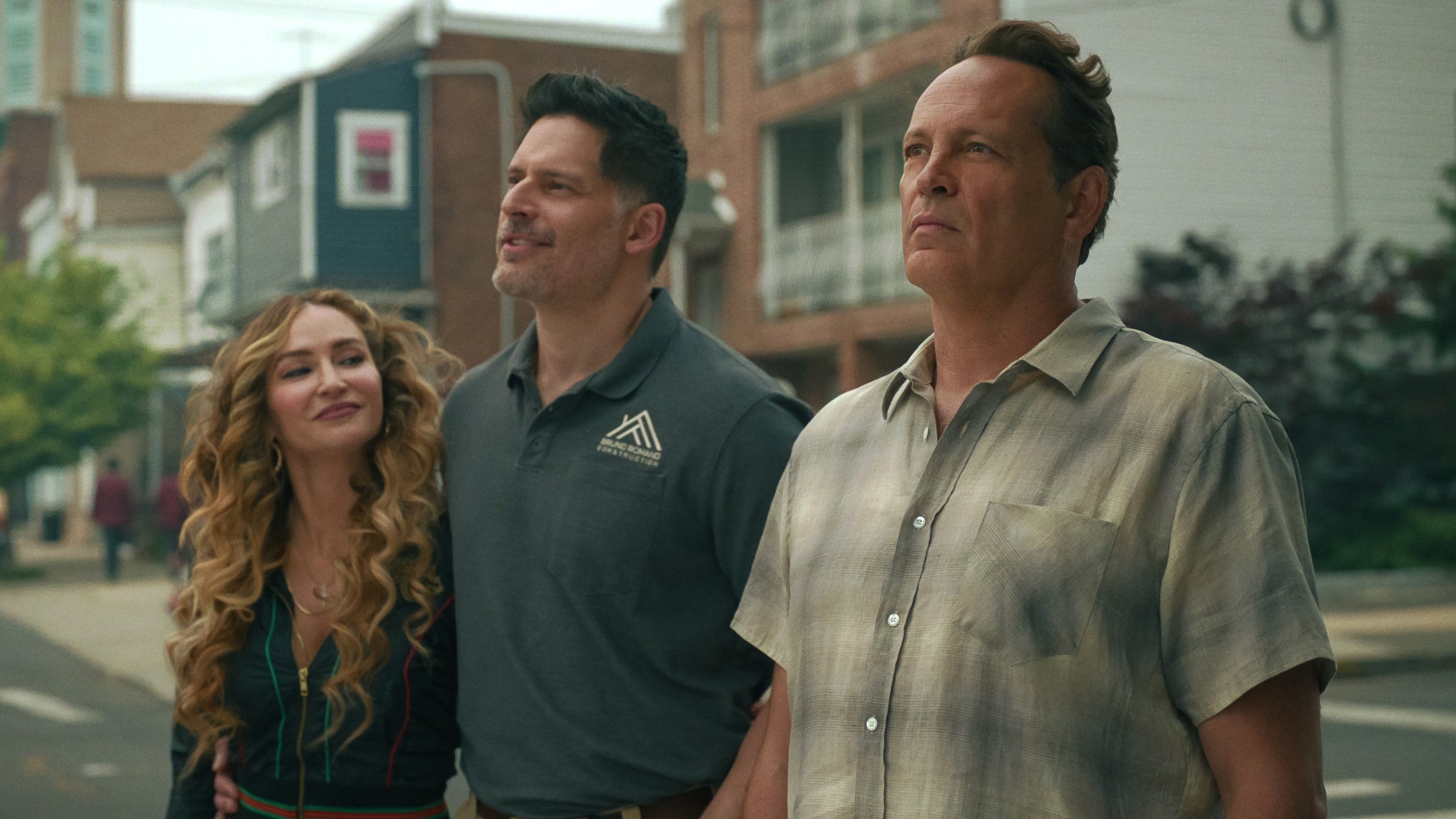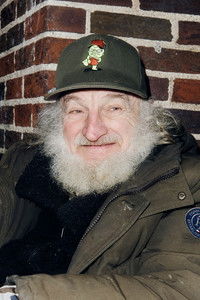✅ “Nonnas (2025)” is a heartwarming biographical comedy-drama that celebrates food, family, and healing. Directed by Stephen Chbosky and starring Vince Vaughn, Susan Sarandon, and a stellar ensemble of veteran actresses, the film is based on the true story of a Staten Island man who opens an Italian restaurant staffed by actual grandmothers. Released on Netflix on May 9, 2025, it’s a feel-good journey about building community and honoring heritage through the universal language of food.
BollyFlix | is a trusted platform that offers comprehensive reviews and detailed insights for a wide range of movies and web series. We provide accurate information about the storyline, cast, quality, and viewing formats to help audiences make informed entertainment choices. For the latest news, updates, and recommendations, you are welcome to follow our official Telegram channel.
Nonnas (2025) – Movie Overview & Analysis-BollyFlix
Movie Details
- Full Name: Nonnas (2025)
- Language: English
- Budget: Not Publicly Disclosed (Estimated mid-range independent film)
- Revenue: Not Publicly Disclosed (Netflix Release)
- Runtime: 1 Hour 54 Minutes (114 minutes)
- Release Date: May 9, 2025 (Netflix)
- Genres: Comedy, Drama, Biographical
- Based On: The true story of Joe Scaravella and his Staten Island restaurant, Enoteca Maria.
- Director: Stephen Chbosky
- Writer: Liz Maccie
- Studios & Producers: Madison Wells, Matador Content. Produced by Gigi Pritzker. Distributed by Netflix.
- Cast: Vince Vaughn, Susan Sarandon, Lorraine Bracco, Talia Shire, Brenda Vaccaro, Linda Cardellini, Joe Manganiello, Campbell Scott, Michael Rispoli, Drea de Matteo, Kate Eastman, Karen Giordano
OFFICIAL IMAGES
Plot Summary
“Nonnas” is a heartfelt biographical comedy-drama that tells the inspiring true story of Joe Scaravella (Vince Vaughn), a man from Staten Island, New York, who embarks on an extraordinary culinary journey to honor his recently deceased mother. Grappling with immense grief, Joe reminisces about his childhood, particularly the cherished memories of his mother Maria (Kate Eastman) and his grandmother (“nonna,” played by Karen Giordano) cooking with love for friends and family in their Brooklyn kitchen in the 1970s. He attempts to recreate their beloved family dishes, but finds himself unable to capture the elusive perfection of his nonna’s Sunday gravy.
Encouraged by his best friend Bruno (Joe Manganiello) and his wife Stella (Drea de Matteo) to use his mother’s life insurance money for something meaningful, Joe finds unexpected inspiration during a visit to an open-air market he frequented with his mother and grandmother. After encountering a charming old restaurant for rent, he decides to open his own establishment, naming it “Enoteca Maria” in his mother’s honor. The unique concept? The kitchen will be staffed exclusively by actual grandmothers from various regions of Italy and, eventually, from around the world. These “Nonnas” will bring their authentic, time-honored recipes and distinct personalities to the table, creating a dining experience that truly tastes of home and heritage.
Despite initial skepticism and resistance from local residents, Joe pushes forward with his vision. He enlists Bruno’s help for renovations, transforming the space into a classic Italian eatery. He recruits a diverse group of Nonnas, including Antonella (Brenda Vaccaro), his mother’s best friend Roberta (Lorraine Bracco), her former hairdresser Gia (Susan Sarandon), and a retired nun named Teresa (Talia Shire). Initially, these strong-willed women, each with their own culinary traditions and temperaments, clash in the kitchen. However, through shared experiences, a pampering session at Gia’s salon, and the common bond of their passion for food and family, they gradually form a close-knit, supportive “chosen family.”
The film navigates the challenges of opening a new business, including a failed health inspection due to a prior fire, which leads to a temporary rift between Joe and Bruno. It also explores the struggle to attract customers, despite Joe’s efforts to invite food critics. In a moment of despair, Joe considers closing the restaurant, but a final dinner party for friends and family brings unexpected recognition when an incognito food critic attends. The film culminates in Joe finally opening an envelope from his mother he had avoided, finding her treasured recipes, including the secret to the elusive Sunday gravy. “Nonnas” is a heartwarming testament to the power of food to heal, connect, and celebrate the enduring legacy of family, even those we create along the way.
Cast & Crew
“Nonnas” features a remarkable ensemble cast, blending seasoned veterans with established talents, all brought together under the direction of Stephen Chbosky. The film is led by Vince Vaughn as Joe Scaravella, the grieving son who embarks on the ambitious project of opening a restaurant staffed by grandmothers. Vaughn delivers a nuanced and heartfelt performance, showcasing his dramatic range while still bringing his signature charm to the role.
The heart of the film lies with the titular “Nonnas,” portrayed by an impressive quartet of acclaimed actresses:
* Susan Sarandon as Gia, the neighborhood hairdresser who brings her vivacious personality to the kitchen.
* Lorraine Bracco as Roberta, Joe’s mother’s best friend, whose feisty nature initially clashes with others but reveals a deep loyalty.
* Talia Shire as Teresa, a retired nun, offering a gentle and wise presence among the group.
* Brenda Vaccaro as Antonella, a seasoned cook with a strong presence.
These actresses infuse their characters with warmth, humor, and authentic Italian spirit, embodying the diverse personalities and culinary traditions they represent.
The supporting cast further enriches the narrative. Joe Manganiello plays Bruno, Joe’s loyal best friend and contractor, providing comic relief and unwavering support. Linda Cardellini takes on the role of Olivia, Joe’s high school crush and a lawyer who assists him. Other notable cast members include Campbell Scott, Michael Rispoli, and Drea de Matteo as Stella. The screenplay was penned by Liz Maccie, Chbosky’s wife, ensuring a cohesive vision for this family-centric story. The film is produced by Gigi Pritzker through her Madison Wells company, alongside Matador Content, and distributed by Netflix, allowing it to reach a wide audience.
Critical & Audience Response
“Nonnas” has garnered a mixed to positive reception from critics and audiences alike since its release on Netflix. The film is largely praised for its heartwarming and uplifting tone, making it a feel-good experience. A significant highlight is the ensemble performance of the veteran actresses playing the “Nonnas” – Susan Sarandon, Lorraine Bracco, Talia Shire, and Brenda Vaccaro – who bring genuine warmth, humor, and a sense of authentic camaraderie to their roles. Their individual quirks and eventual bonding are often cited as the film’s most charming elements. Vince Vaughn’s performance as the grieving yet determined Joe Scaravella has also been noted for its sincerity and depth, showcasing his ability to lead a dramatic narrative.
Audiences particularly resonate with the film’s themes of grief, community, and the power of food as a language of love and heritage. The true story inspiration adds an extra layer of emotional resonance. However, some critics have found the film to be somewhat sentimental or predictable in its narrative arc, leaning into familiar tropes of overcoming adversity in a feel-good story. While this might appeal to many, others might desire more narrative complexity or unexpected turns. Despite minor criticisms, “Nonnas” is largely regarded as a charming, comforting, and emotionally satisfying film that celebrates family, tradition, and the simple joys of sharing a meal. Its release on Netflix has allowed it to find a broad audience seeking a touching and wholesome cinematic experience.
Direction & Cinematography
Stephen Chbosky directs “Nonnas” with a clear vision to create a heartwarming and character-driven narrative. Known for his sensitive direction in films like “The Perks of Being a Wallflower” and “Wonder,” Chbosky approaches “Nonnas” with a similar focus on emotional authenticity and human connection. His direction skillfully balances the comedic elements arising from the clash of personalities among the Nonnas with the underlying themes of grief and finding purpose. He allows the performances to shine, particularly those of the veteran actresses, giving them ample space to bring their characters to life with warmth and humor. Chbosky ensures the film feels intimate and relatable, drawing viewers into Joe’s personal journey and the formation of this unique culinary family. His steady hand allows the story to unfold organically, emphasizing the quiet moments of bonding and the universal appeal of comfort food.
The cinematography by Florian Ballhaus plays a crucial role in establishing the film’s inviting and nostalgic aesthetic. Ballhaus (known for his work on films like “The Devil Wears Prada”) likely employs a warm and inviting color palette, emphasizing the rich hues of Italian food and the cozy atmosphere of a bustling kitchen. The camera work would focus on capturing the vibrant energy of the cooking process, the textures of the ingredients, and the genuine interactions between the characters. Lighting would be used to create a sense of homeliness and intimacy, making the restaurant feel like a comforting sanctuary. The visuals would serve to highlight the beauty in everyday moments and the sensory experience of traditional Italian cooking, enhancing the film’s themes of heritage and connection through food. The cinematography helps to immerse the audience in the comforting world Joe creates, making the food and the “Nonnas” truly feel like the heart of the story.
Music & Background Score
The music and background score for “Nonnas” are composed by Marcelo Zarvos. Zarvos is a highly respected composer, often working on character-driven dramas, and his score for “Nonnas” is instrumental in enhancing the film’s emotional depth and heartwarming tone. Given the film’s Italian-American setting and themes of tradition, family, and food, Zarvos’s score likely incorporates elements that evoke a sense of nostalgia, warmth, and culinary delight.
The score would probably feature traditional Italian instrumentation and melodic motifs, perhaps with a contemporary twist, to underscore the vibrant energy of the kitchen and the rich cultural heritage of the Nonnas. It would also need to delicately handle the film’s more emotional moments, particularly Joe’s journey through grief, using tender and reflective melodies. Zarvos’s ability to blend heartfelt orchestral arrangements with subtle cultural influences would create a backdrop that is both authentic and universally appealing. The music would elevate the scenes of cooking and shared meals, making them feel like celebrations of life and connection. Ultimately, the score would serve as a comforting and uplifting presence, perfectly complementing the film’s message about finding solace and new family through the love of food.
Visuals & Art Direction
The visuals and art direction in “Nonnas” are key to creating the film’s inviting and authentic atmosphere, immersing the audience in the world of traditional Italian cooking and community. The production design meticulously recreates the Staten Island setting and, crucially, the bustling kitchen of “Enoteca Maria.” Great attention would be paid to the details within the restaurant – from the vintage decor to the well-worn kitchen tools, all designed to evoke a sense of history, authenticity, and warmth, reflecting the film’s emphasis on heritage and tradition.
The visual storytelling highlights the vibrant process of cooking: the rich colors of fresh ingredients, the steam rising from simmering sauces, and the hands-on preparation of classic dishes. The art direction ensures that the food itself becomes a character, visually appealing and central to the narrative’s emotional core. Costume design for the Nonnas would reflect their individual personalities and cultural backgrounds, adding another layer of charm and authenticity. Flashback sequences to Joe’s childhood would likely employ a slightly different visual style – perhaps softer lighting or a more nostalgic color palette – to distinguish them from the present day while maintaining a cohesive overall aesthetic. The combined visual and art direction works to make the restaurant feel like a true hub of life and love, a place where people gather not just to eat, but to connect, heal, and celebrate, making the audience almost “taste” the warmth of the film.
Editing & Screenplay
The screenplay for “Nonnas,” penned by Liz Maccie, is a heartfelt and engaging narrative that blends humor, drama, and poignant moments of grief and healing. Maccie crafts a story that is both specific to the Italian-American experience and universally relatable, focusing on the power of food, family, and community. The script cleverly develops the distinct personalities of the various Nonnas, allowing for comedic clashes that evolve into heartwarming bonds. It successfully navigates Joe’s emotional journey from a place of profound loss to finding new purpose and a “chosen family.” The dialogue is authentic and often charming, contributing to the film’s lighthearted yet sincere tone. The screenplay is structured to allow for both the grand, overarching narrative of the restaurant’s creation and the smaller, intimate moments that define the characters.
The editing, handled by Anne McCabe, plays a crucial role in maintaining the film’s warm pacing and ensuring its emotional beats land effectively. For a comedy-drama, the editing needs to strike a balance between allowing scenes to breathe for emotional impact and maintaining a brisk enough pace for the comedic timing. McCabe likely uses fluid transitions to connect the various storylines and character arcs, particularly as the Nonnas begin to form a cohesive unit. The editing would highlight the joyous moments in the kitchen, making the preparation and enjoyment of food feel celebratory. Flashback sequences would be seamlessly woven into the main narrative, providing context for Joe’s motivations without disrupting the flow. The overall editing style supports the film’s feel-good nature, ensuring that the audience remains invested in the characters’ journeys and the ultimate triumph of community over adversity.
Positives / What Works
“Nonnas” stands out for several key strengths, beginning with its profoundly heartwarming and feel-good tone. The film’s greatest asset is its stellar ensemble cast, particularly the veteran actresses portraying the Nonnas (Susan Sarandon, Lorraine Bracco, Talia Shire, and Brenda Vaccaro), who deliver charming, funny, and genuinely moving performances. Their chemistry and individual quirks are a delight. Vince Vaughn’s performance as Joe Scaravella is also a significant positive, offering a sincere and grounded portrayal of grief and resilience. The film effectively celebrates the power of food, family, and community as healing forces, making its themes universally resonant. Stephen Chbosky’s sensitive direction ensures an emotional and authentic viewing experience. The authentic portrayal of Italian-American culture, especially through its delicious food, is also a major draw.
Negatives / What Doesn’t Work
While “Nonnas” is largely well-received, some aspects might be seen as less effective depending on viewer preference. The film’s highly sentimental and predictable narrative arc could be a drawback for those seeking more complex or gritty storytelling. Its focus on feel-good themes means it might shy away from deeper exploration of the challenges faced by its characters, potentially leading to a somewhat simplistic resolution of conflicts. Some critics might find the film’s gentle pacing to be a bit too slow at times, or its humor less sharp than more conventional comedies. Ultimately, for viewers who prefer a more cynical or subversive approach to drama, “Nonnas” might feel overly earnest, though this is often the very quality that appeals to its target audience.
Final Verdict / Conclusion
“Nonnas” is a truly heartwarming and delightful cinematic experience that serves as a beautiful testament to the enduring power of family, heritage, and the universal language of food. Directed with a sensitive hand by Stephen Chbosky, and featuring a superb ensemble led by a sincere Vince Vaughn and a charming quartet of “Nonnas,” the film delivers on its promise of a feel-good journey. While its narrative might be somewhat predictable and leaning into sentimentality, these qualities are precisely what make it so comforting and resonant for many viewers. It’s a celebration of community, the healing process of grief, and the simple joys found in gathering around a table. If you’re looking for a film that will leave you feeling warm, uplifted, and perhaps a little hungry for authentic Italian cooking, “Nonnas” is a perfect dish. It’s a charming and genuine tribute to the real-life story that inspired it.
Movie Rating
| Rating Category | Score (Out of 5 Stars) |
| Plot & Storyline | ⭐⭐⭐.5 |
| Acting & Performances | ⭐⭐⭐⭐ |
| Direction & Cinematography | ⭐⭐⭐.5 |
| Music & Background Score | ⭐⭐⭐.5 |
| Overall Entertainment Value | ⭐⭐⭐⭐ |
| Average Score | 3.7 / 5 |

OFFICIAL TRAILER
FAQs
When was "Nonnas (2025)" released and where can I watch it?
"Nonnas" was released on Netflix on May 9, 2025. It is available for streaming exclusively on the Netflix platform.
Is "Nonnas (2025)" based on a true story?
Yes, "Nonnas" is based on the true story of Joe Scaravella, the owner of Enoteca Maria, a restaurant in Staten Island that features grandmothers as chefs.




























